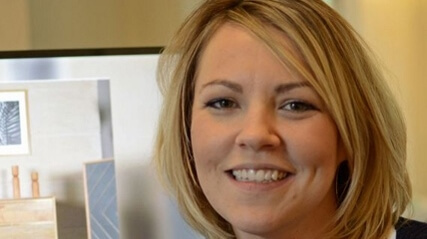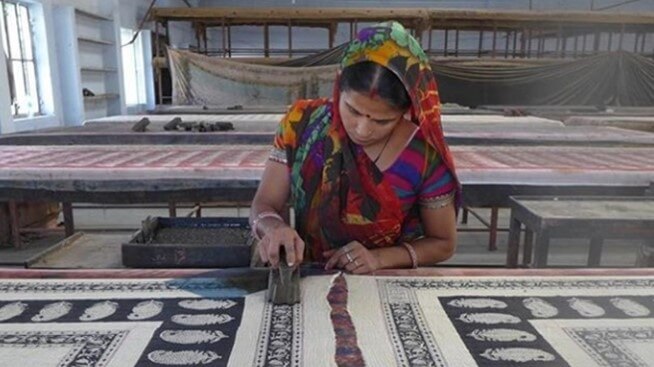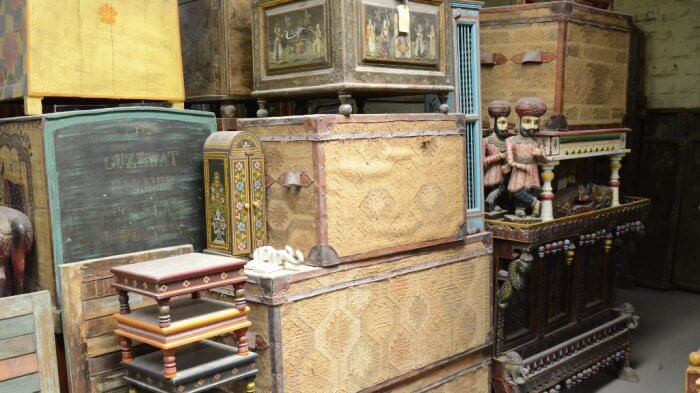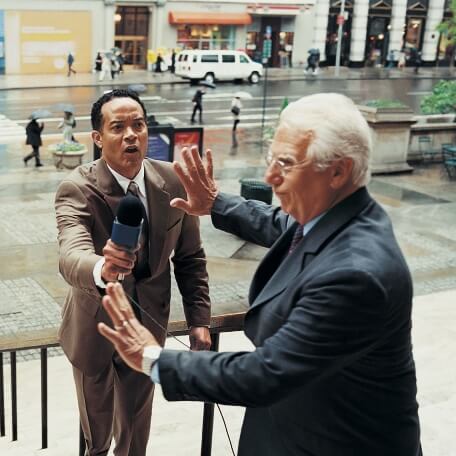Rock & Roost: Why Made-To-Order Furniture Has Legs
The new business plans to provide unusual and hard-to-find pieces at high street prices

Jennie Rourke, CEO of Rock & Roost, is leading the business into a new era. She explains why the future is bright for made-to-order furniture and why she has opted to crowdfund the business’ latest growth drive.
Let’s hear the business pitch
Rock & Roost is a new and exciting made-to-order furniture and homeware retailer. The business is online-only and essentially what we do is connect customers directly with factories that produce beautiful products.
The customer orders items through the website, the factories process the order and deliver direct. Our role is to facilitate the sales and the supply process while keeping open channels of communication so Rock & Roost customers have complete clarity.
Why did you think it would work?
Rock & Roost is actually a development from an existing UK business, which is established and profitable. This was built up by my father and it provides software solutions, mainly to fashion manufacturers supplying big high street names like John Lewis and Top Shop.
The software helps them become more efficient and profitable, supporting the supply chain from design through to delivery. The new business will use this platform to supply furniture and related products, which we think is a huge advantage.

Factories in India are ready to supply the UK market
How has the business evolved?
I have worked with my father on the existing business for 12 years and our combined experience and successes means now is a very good time to grow. I have thought for a long time that owning the software gives us a huge advantage and that we should use it to create the ultimate furniture retailer with great products at attractive prices.
The idea started taking shape in 2015 and since then we have blended it all together. We have developed a core team covering the various responsibilities, hired some expert advisors and built a prototype website capable of dealing with high volumes of traffic and orders.
We have existing relationships with a series of factories in India and these will be coming on-stream when the business formally launches.
Is this a buoyant market for business?
The furniture and homeware market is obviously enormous, valued in the billions in the UK alone, but it is also being disrupted by new entrants and there is a lot of scope to shift the focus onto new, dynamic players.
The made-to-order model, meanwhile, is definitely growing in popularity. It rejects the stack ‘em high sell’ em cheap system, which can be very wasteful, and focuses on delivering what people really want.
There is certainly demand for high-quality and unique products, and we believe people value the experience of buying pieces that aren’t easily available elsewhere – certainly not in the major retail multiples.
There is also a cost saving to the customer, because they don’t have to cover money spent on vast warehouses, expensive showrooms, energy bills to light and heat these buildings, plus all the staff it takes to run them.
We think this is a win-win-win.
How have you marketed the business?
Because this part of the business is essentially pre-launch, we are not aggressively marketing it yet; rather building brand awareness and developing interest about the potential scale of what we want to achieve.
I have done interviews with journalists and these articles will be going live over the next few days and weeks, plus we have launched a Crowdfunding campaign on Crowdcube, which not only will attract investment but also gives us the chance to spread the word about the business.
Have you experienced problems? If so, how have you overcome them?
Not problems, but certainly challenges. Like most forms of investment, crowdfunding is a labour-intensive process and rightly so. We have worked hard with the team at Crowdcube to get all the elements together over many months.
It’s also a delicate process because companies aren’t allowed to use hyperbole about how brilliant they are or how much money they’re going to make, only the bare facts of the business. Luckily our numbers are very strong, so it works in our favour.

Rock & Roost is geared up to supply hard-to-find pieces
What makes running a business fulfilling?
I love new ideas, creativity and the process of seeing them through into real, tangible developments. The business has quite a long history but it is constantly updating and evolving to meet new challenges and take advantage of opportunities.
The Rock & Roost brand is, in a sense, the fulfillment of that process. It’s great that we’re staying ahead of the curve and are not prepared to sit back and enjoy the fruits of our work to date.
I also love the fact that Rock & Roost gives me opportunities to travel. There is nowhere like India to stimulate the senses and get ideas flowing. It’s such a beautiful, diverse and extraordinary country. I always look forward to factory visits.
What are your plans for the future?
We are raising money to invest in our website and procurement software systems, adapting our standard software into a fully presentable system. We also need a major marketing campaign and a small amount of warehousing that we need for our smaller product lines. Adequate working capital is essential for growing any business.
If we’re successful then we plan a burst of activity. We’re lucky to have so many pieces of the puzzle in place so we can hit the ground running.
What are your top tips for people starting a business today?
It’s important to focus on what you are trying to achieve and really get to the heart of how you will arrive there. What need will your business address and how, in practical terms, will you satisfy that demand?
Once you have that part clear it’s important not to try and do everything yourself. One of the hardest aspect of business is being realistic about your strengths and weaknesses. Do the things you are good at and bring in specialists to take care of the parts you’re not so hot on.
Successful entrepreneurs often praise their team saying they couldn’t have done it on their own. This is absolutely true in almost all cases, so be sure to surround yourself with great people who can help you achieve your vision.
The last thing I’d say is never give up. If one approach does not work, then try another. If you fall over, just get straight back up again, tomorrow is a new day.
Thanks for signing up to Minutehack alerts.
Brilliant editorials heading your way soon.
Okay, Thanks!


